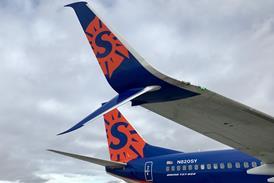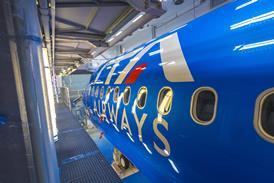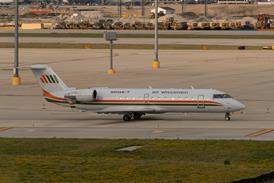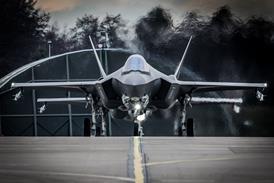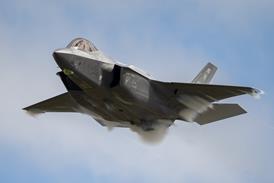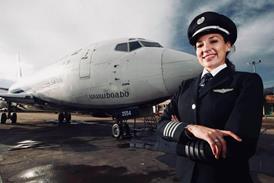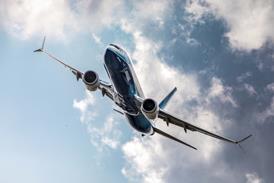The alliance proposal from Continental, Delta and Northwest Airlines was always destined to raise some controversial competition issues. In the event the response has been far from clear, with the Departments of Justice and Transportation singing from different sheets.
From the outset, the three-way domestic alliance proposed by Continental, Delta and Northwest Airlines, was going to put regulators to the test. It demanded some hard, clear decision-making. And indeed, at the start of this year, the Departments of Transportation (DoT) and Justice (DoJ) both staked out firm positions. Unfortunately, they were staked out leagues apart.
The three would-be partners knew that theirs was destined to be a major test case. The sheer size of the alliance - the largest US codeshare on record - made that certain. Accordingly the proposal was more modest than most likely they wanted. They even agreed to limit their hub flying and not to share revenues from alliance flying.
Delta alone is big enough to be a controlling force in the industry. With the other two the alliance would hold a 35% share of the domestic market. United Airlines and US Airways are already aligned with another 21%. That leaves only American Airlines unaligned domestically among the top tier, although it did already snap up TWA.
The three would-be partners also knew that objections would be plentiful. They poured into the DoT between late August, when the alliance was proposed, and late January, when the agency finally came out with a list of conditions.
This case, as major cases often do, became a sounding board over the intervening months for whatever were the breaking issues of the day. Many objections arrived from the small independent airlines, which used the proceedings as a forum to demand more access to key airports such as the slot-constrained airports of the Northeast.
Significantly, the objections found a very different response from each regulator. At the start of the year, just a week before the DoT announced its detailed demands, the antitrust lawyers at the DoJ came out with a far shorter set of conditions, which the three said they could meet easily.
The DoT was not so sure. The low-cost community had made it point effectively, and the agency's demands were extensive. The three allies would have to be ready to give up 13 gates at four hubs (Cincinnati, Dallas/Fort Worth, Detroit, and Houston) plus domestic gates at other airports if the gates were deemed to be under-used at fewer than six times a day and if the local airport requested one of the three allies to do so. The DoT regulators also wanted restrictions on 60% of new flights so that "under-served" markets would gain service. The would-be allies also faced strict limits on their joint bids for corporate travel deals.
Northwest chief executive Richard Anderson said the gate limits could shut down Memphis, the smallest of its three hubs, and, by coincidence, a major city of the state of Tennessee, which happens to be the home of the new Senate majority leader, Bill Frist.
Michael Levine, the Yale law professor who was a Northwest executive in the 1990s, although reluctant to appear partisan, labelled the conditions a throwback to the days when the now-defunct Civil Aeronautics Board would specify in detail who could fly where, but only after talking to rivals and finding out what they wanted.
More importantly, whether or not they feel that an alliance like this is too big, most in the industry probably believe that most applicants deserve a clear voice from the regulators. And this is precisely what they did not get. The bipolar mindsets shown in the two responses to the alliance surely sends a muddled message that complicates the next step in industry consolidation.
When the three sat down and looked at the DoT long list and the DoJ short list, they decided to fight. They said they would go ahead with the first stages of their alliance, and they would impose some limits on themselves. The three offered to release to local airport authorities 13 gates at the four hub airports, and to accept a one-year restriction of new domestic flights and a restriction of three-carrier joint bids for corporate or travel agency contracts. But to the rest of the list they said 'no'.
The DoT response was to vow to file an enforcement action that would bring the alliance into a juridical proceeding at the agency, and has since been busy preparing its case.
It is arguable that the carriers were emboldened by the lack of harmony between the two watchdogs, each barking a different tune, but that does not detract from the fact that two sets of regulators came up with such dramatically different conclusions. One could note that both sets of regulators signed off last year on the plan to allow United and US Airways to ally, which set off Delta in search of its two partners.
The DoT said it would not negotiate to head off a court case. If it goes back on that pledge, its stand may start to look suspiciously less principled. If it stands firm, then there is still the small matter of its conflict with the DoJ.
Source: Airline Business

